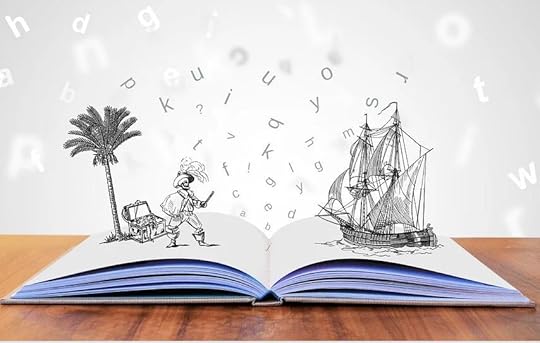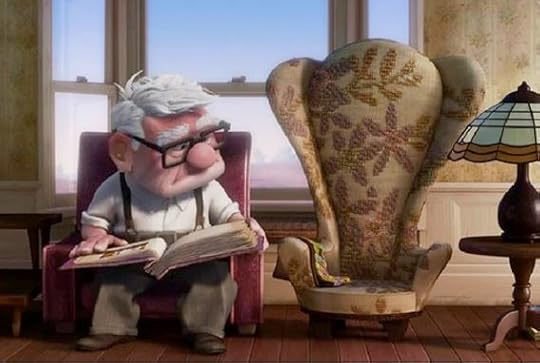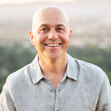Alan Watt's Blog
July 8, 2020
Creativity is our Birthright

Creativity is our birthright. We live in a culture that is invested in our believing otherwise. I frequently hear folks talk of talent as though it were a finite commodity that one either possessed or did not, as opposed to an “inner intelligence” that could be fostered through hard work and persistence.
Writing is not an intellectual exercise, though if you read book reviews, you may be convinced otherwise. I had a “friend” once who read the first draft of my manuscript and told me that it didn’t read like a novel. When I asked this person if I should give it to my agent, I was told, “I’d hold off.” There was no constructive criticism, no concrete or objective ideas on how to improve the work, just a vague, somewhat shaming suggestion that although I had managed to write a 256 page relatively coherent story with a beginning, middle, and end that I had somehow failed to create what was generally considered a book. Imagine my despair! Fortunately I did send the book out into the world, and much to my happy surprise it was well-received. I often think that the writing is the easy part, while being willing to stand our ground and proclaim our truth is what requires bravery.
This is especially true for first-time writers. Who the hell am I to think that I can do this thing? Isn’t it next to impossible to get a book published? Yes and no. I think it helps when one’s focus shifts from “How do I get published?” to “How can I make this story live?” It’s then that we begin to move in the direction of creating stories that are worthy of a reading public.
It is only in retrospect that I realize my friend was the gatekeeper for me. We are going to be tested, and the test, I believe, over and over again, is “How deeply am I willing to trust myself?”
When Oprah asked Cormac McCarthy if he was thrilled at how large his readership had grown, he seemed puzzled. “I write for my friends,” he said. It’s human nature to want accolades, but what if we made our creative curiosity just a little bit more important than our career ambitions? When we do this, we are on our way to writing stories that people will want to read.
How do you make the story more important than the result?
June 3, 2020
It’s Your Turn

This past Saturday night, my wife was reading House Beautiful when she said, “Al, one of your paintings is in here!” And there (see below) was a large painting I’d done about twelve years ago, hanging in the living room of a prominent Los Angeles designer’s home.
And I felt disappointment.
It’s not like I haven’t been creative. I’ve been writing novels and plays. I wrote and directed a feature a few years ago that won some awards. I have a pilot script that is currently getting some attention.
But I stopped painting ten years ago!
Wait. I didn’t actually stop. What happened was we moved to a new house and I never took out my easel.
My point is that I teach creativity for a living, and I missed this. When I saw that photo of my painting, I should have been thrilled, but I wasn’t. I was bummed. I didn’t really care that my painting was in a magazine – sure, it was cool, but as I tell my students, “the thrill of creation is the reward.”
When Steven Soderberg won his Oscar for Traffic, he said something like, “I’d trade this for five minutes of pure inspiration.”
For years, I used to look at my garage and say, “One day I’ll clean this out and start painting again, but right now I’m too busy.” Well, thank God, my wife is awesome. She said, “Al, this is a sign.” And the next morning we cleaned out the garage. It took two hours. Well, ten years and two hours to be precise.
Procrastinating is not the same as quitting. It’s worse. At least quitting gives you closure. You can grieve it and move on. Procrastination feels terrible, like you’re constantly walking through a field of mud. Its “I’ll do it tomorrow.” And then, tomorrow turns into a decade…or five. The days tick by and we watch other people’s dreams come true. We call it busyness or obligation. One day, we tell ourselves… when the kids are grown, when my spouse stops drinking, when this pandemic is over.
And the shocker is that we actually have a choice.
What if you cleaned out your garage today?
It’s your turn.
May 13, 2020
Show, Don’t Tell

Show, don’t tell—the mantra of every screenwriting teacher. Film is a visual medium in which character is revealed through behavior. As novelists, we are afforded the luxury of exploring the internal lives of our characters, but this can often be misunderstood by the novice fiction writer as “telling, not showing.” The novice writer can sometimes become so absorbed in the internal lives of his characters that the story collapses into burdensome exposition. The writer doles out more and more backstory in a desperate attempt to get the reader “caught up” so that the actual story can begin. An aspect of the craft lies in disguising or dramatizing exposition to keep the reader turning the page. Showing is not relegated to film writing. Storytelling, regardless of the medium, is dependent upon showing and not telling.
Let’s examine the difference.
Showing is objective. It allows us to draw our own conclusions. Do we trust what we are told in our everyday lives? Hell no! Why should we trust some dude we’ve never met just because he filled a couple hundred pages with words? Telling suggests opinion. Readers are not interested in opinion. Readers are not interested in psychologizing, intellectualizing, philosophizing or conjecture. Readers are only interested in what is happening. Story is the series of beats that leads to our hero’s transformation. This is an infinitely broad canvas on which to paint, but it is a canvas, meaning that it does have borders, that there is a context for that story. And when the context is broken, it becomes something else; essay, manifesto, diatribe, or worse, therapy.
Showing is visceral, immediate. It pulls us into the experience. Telling is playing God, dictating what one ought to think and feel about a given situation. Telling carries the stink of agenda, of the writer having his thumb on the scale. Telling is boring. It lacks energy and immediacy, and engenders distrust in the reader. As I write this, it occurs to me that I am telling you my opinion. This concerns me. How the hell does this guy know what he’s talking about?
Which bring me to my final point.
There are no rules. It either works or it doesn’t work. You are accountable to no one. You may write a story that is entirely in the mind, a completely non-narrative book or screenplay that defies all known laws of structure, and nobody will stop you. But after you step back from it a little bit and the dust settles, you may discover that you have shown us something new.
May 6, 2020
Story Structure


Story structure is often taught by story analysts as plot, but it is really the DNA of our protagonist’s internal journey to transformation.
Without a sense of a beginning, middle and ending, you are likely going to get lost, and by having a sense of how to proportion your story you will be more aware of where your story is not working.
Structure is related to THEME and not PLOT. By working with structure we begin to understand what we are trying to express. Don’t assume or take for granted that you know what you are trying to express. I always say that “Our idea of our story is never the whole story. It is not that our idea is incorrect. It is that it is incomplete.”
By deepening our relationship to story structure, we develop the tools to write a more compelling narrative.
I always love to hear from writers. Please share with me your thoughts on this.
April 29, 2020
Story Structure


Story structure is often taught by story analysts as plot, but it is really the DNA of our protagonist’s internal journey to transformation.
Without a sense of a beginning, middle and ending, you are likely going to get lost, and by having a sense of how to proportion your story you will be more aware of where your story is not working.
Structure is related to THEME and not PLOT. By working with structure we begin to understand what we are trying to express. Don’t assume or take for granted that you know what you are trying to express. I always say that “Our idea of our story is never the whole story. It is not that our idea is incorrect. It is that it is incomplete.”
By deepening our relationship to story structure, we develop the tools to write a more compelling narrative.
I always love to hear from writers. Please share with me your thoughts on this.
April 28, 2020
What Do I Write Next?

Writers tell me frequently: “I have three ideas. Which one should I write next?”
In the 90-day novel workshop, the first exercise we do is we write for five minutes, beginning with: “My story is about….”
And the writer says, “But I don’t know which story to write about.”
I tell them, just start writing. 90% of the time, this does the trick. Our subconscious knows which story wants to be told next. We tend to get in the way with all sorts of noise about what we think the market is looking for, and trying to figure out which story will change our life and provide the quickest route to quitting our day job.
All of the stories will be told in time. We will get to them eventually. We may even discover that what we wanted to be expressed in one story gets expressed in another.
The most important thing is to make a choice! Ideas are a dime a dozen. Don’t use your abundance of ideas as a reason to procrastinate.
Ultimately, it doesn’t matter what you write. Our work guides us inexorably to a greater understanding of ourselves. Since the purpose of story is to reveal a transformation, our work is simply a byproduct of our growth.
Just start writing.
March 17, 2020
Overcoming Self-Doubt

Feelings Aren’t Facts
I used to be amazed at the madness of my mind. One day, I think my writing is brilliant, and the next I’m cringing with embarrassment.
It’s difficult to have objectivity when we’re in the middle of our story. For first-time novelists it’s particularly challenging because we have no evidence that what we’re doing will ever bear fruit.
Don’t make too much meaning out of your feelings. There will be good days and bad days, and you might be surprised at the wildness of your mood swings, particularly in the beginning. Just make your goal the completion of your daily page count. Only then can you step back and see what you’ve got.
How do you deal with the ups and downs of writing?
February 25, 2020
“What is the Book Market Looking For?”

“What does the market want?” I hear this question frequently from first-time novelists, as if there’s some secret, as if their job is to figure it out, so that they can fulfill the marketplace’s order, like they’re building widgets. We are the market — me and you, and everyone you pass on the street.
If you ask people what they want to read, the majority of them will not say, “Vampire novels,” or “Anything about wizards.” Most folks are not that specific with their tastes. Rather, you’ll likely hear, “I enjoy mysteries,” or “thrillers,” or “romance,” and mostly, “I just want to read something good.” While many readers are drawn to a particular genre, the latitude we have as novelists is enormous within our chosen genre.
Basically our job is to write something that doesn’t suck, because that’s what the market is looking for.
So, how do you do that?
By writing the novel that you’ve always wanted to write, but are afraid to put on paper.
Could anyone have predicted that first-time novelist Kathryn Stockett’s The Help was going to sell millions of copies? What about first-time novelist Alice Sebold’s The Lovely Bones, a novel about the aftermath of a young girl’s rape and murder?
Write the novel that you must write. Tell the story with all of the passion and heart you can muster. Write it for yourself, and let go of the notion that until it is sold it has no value. If you do that, the market might very well beat a path to your door.
What kind of book do you want to write?
Tell us about it in the comments section below.
February 12, 2020
The Courage to be Specific in Writing

We are full of paradoxes. We only love to the extent that we hate. We are constantly changing our minds, constantly renegotiating with ourselves and others. To be specific is to be curious about the truth of the human condition. In Malcolm Gladwell’s The Tipping Point, he talks about how we have a tendency to want to categorize people. Bill is honest. Jack is a liar. This makes us feel secure, as if the world were not more chaotic, ambiguous, and dangerous. This is not the case. Human beings respond based on a multitude of stimuli. Depending on a given situation, we can be honest or dishonest, serious or silly, horny or chaste, stubborn or flexible.
We respond situationally.
When we get specific with our characters our writing comes alive, and we often discover something about our nature that we had been avoiding. Part of the thrill of writing lies in upending long-held beliefs. When an image comes to us, rather than rushing to judgment with “my character would never say or do that,” instead ask yourself, “under what conditions might my character be compelled to behave in such a way?” Every image or idea comes to us for a reason. It is simply our job to be curious. Whatever you believe about a character, be curious about its opposite. Find where that aspect lives in them as well.
You will discover that in every story your hero and antagonist both want the same thing. In the movie SE7EN, Morgan Freeman and Kevin Spacey both want a better world. In One Flew Over The Cuckoo’s Nest, McMurphy and Nurse Ratched both want life to be comfortable and easy. These characters are all seeking to fulfill the same desire, but they approach the world, their perception of the human animal, in distinctly different ways.
The battle is ultimately over an idea. Cuckoo’s Nest questions the idea of conformity, while Se7en questions the idea of humanity’s essential goodness. The writer’s job is to track the beats in a believable way that leads to a transformation. This means being curious and specific about the world of these people. It is within these beats that we can discover electrifying truths. Specificity is the cradle of great writing. When the writer is courageous enough to hold the tension of ambiguity and be curious about the thin line between love and hate, valor and cowardice, humility and pride, he will naturally be led to deeper truths about his characters. It is under the stressful conditions of the story that character is revealed, and it is within those specific moments of decision that the writer has an opportunity to explore his characters, to be willing to ask, “what if?” Just for the hell of it . . . what if my character went this way?
Getting specific is all about rewriting. It means going into the scene and looking for the wrinkles. Once you know the basic arc of the scene, what else can you find when you explore the basic tension? This adds depth and complexity to your story, gives it the stink of realism. We feel like we are there, like we are witnesses. The specific writer is willing to put his curiosity before his fear that the story will fall apart. Let your characters dazzle and surprise you, and then just run behind them with a spyglass and a bucket of words, finding evidence to support their decisions.
When you feel like a character isn’t working, do you have any tricks or tools to bring them to life?
January 15, 2020
Character Transformation

A fundamental understanding of transformation is crucial to having anything more than an intellectual relationship to structure. We have all read the books on three-act-structure. By the way, what lasting stories have any of these people written? I mean no offense in saying this, but it is important to recognize that no one has yet been able to isolate the transcendent beauty that draws us in and lies at the heart of every great story. It is one thing to analyze the anatomy of a story, but is it possible that story also contains magic, some ineffable quality that rises from a source that we can’t explain?
The writer’s job (as I see it), is to track the beats in a believable way that lead to a transformation.
Story is the most powerful way we have to express ideas. We can actually see the journey that a human being takes in getting from one place to another, and this journey inevitably involves some kind of transformation. When we think of the word transformation, it sometimes conjures some miraculously grand occurrence, some vision of enlightenment. However, transformation is quite simply a shift in perception. Nothing more. And yet, when we have seen something one way our entire life, and then, sometimes in an instant, we see it in an entirely other way, it can be quite miraculous, and it can also be quite ordinary, as in, “duh, yeah, of course, now I see.” When a transformation occurs, the tension vanishes, the fight disappears, and we are left with a knowing that was not there before. Through the journey of the story, the hero (and ourselves), come to understand something that we were previously asleep to.
Einstein said that “you can’t solve a problem with the same thinking that created it.” Every story begins with a problem. A problem that wants to be solved. Our challenge as writers is to understand and accept that our hero wants something, wants it desperately, and the stakes are life and death. If our hero does not get what they want, their life will be unimaginable. If the stakes are any less, we will not care. It is that way in life, isn’t it? If we don’t get what we want, we cannot imagine going on. And at some point in the story, the hero comes to realize that in fact, it is impossible for them to get what they want. They are faced with a dilemma. Do I give up, or do I surrender? There is a difference. It is an important distinction. Surrendering does not mean giving up the want, it means letting go of the idea that it is what we must have to be free. Transformation occurs when we recognize that we are the only ones that can give us what we want. The want begins outside of oneself, and by the end of the story, the hero is able to reframe it as something that they can give to themselves. It is in this shedding or surrendering of the old victim identity that the hero accepts the reality of their situation and adapts. In doing this, it becomes possible for the hero to get what they want, if what they want belongs in their life.
Now, you may say, what about a story where the hero dies, or where the hero doesn’t get what they want. There are cautionary tales, where the hero is destroyed by their own willfulness, but this does not mean that they have not come to understand the error of their ways. Story necessarily involves a transformation.
What is your favorite character transformation in a book or film?
Leave your reply below.







